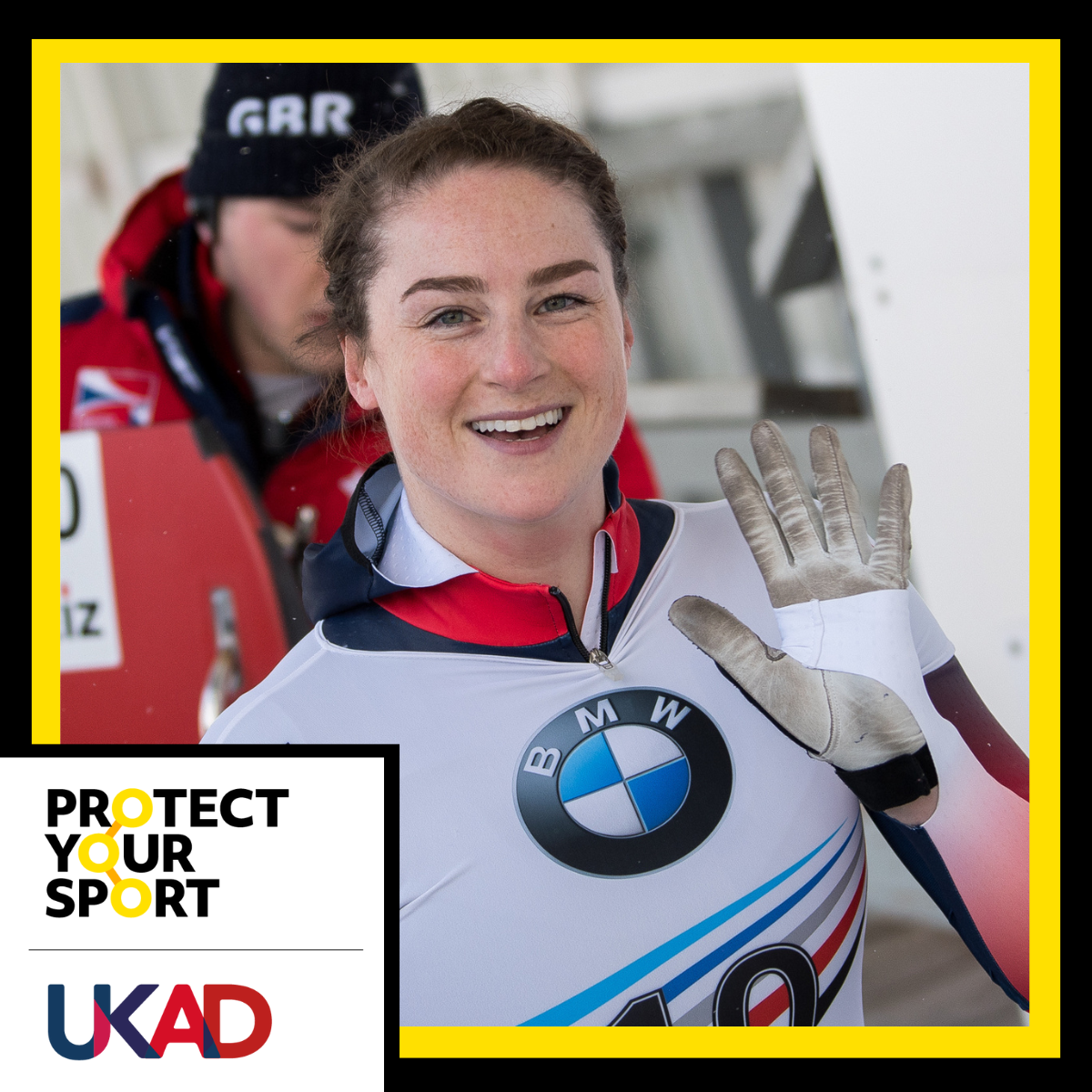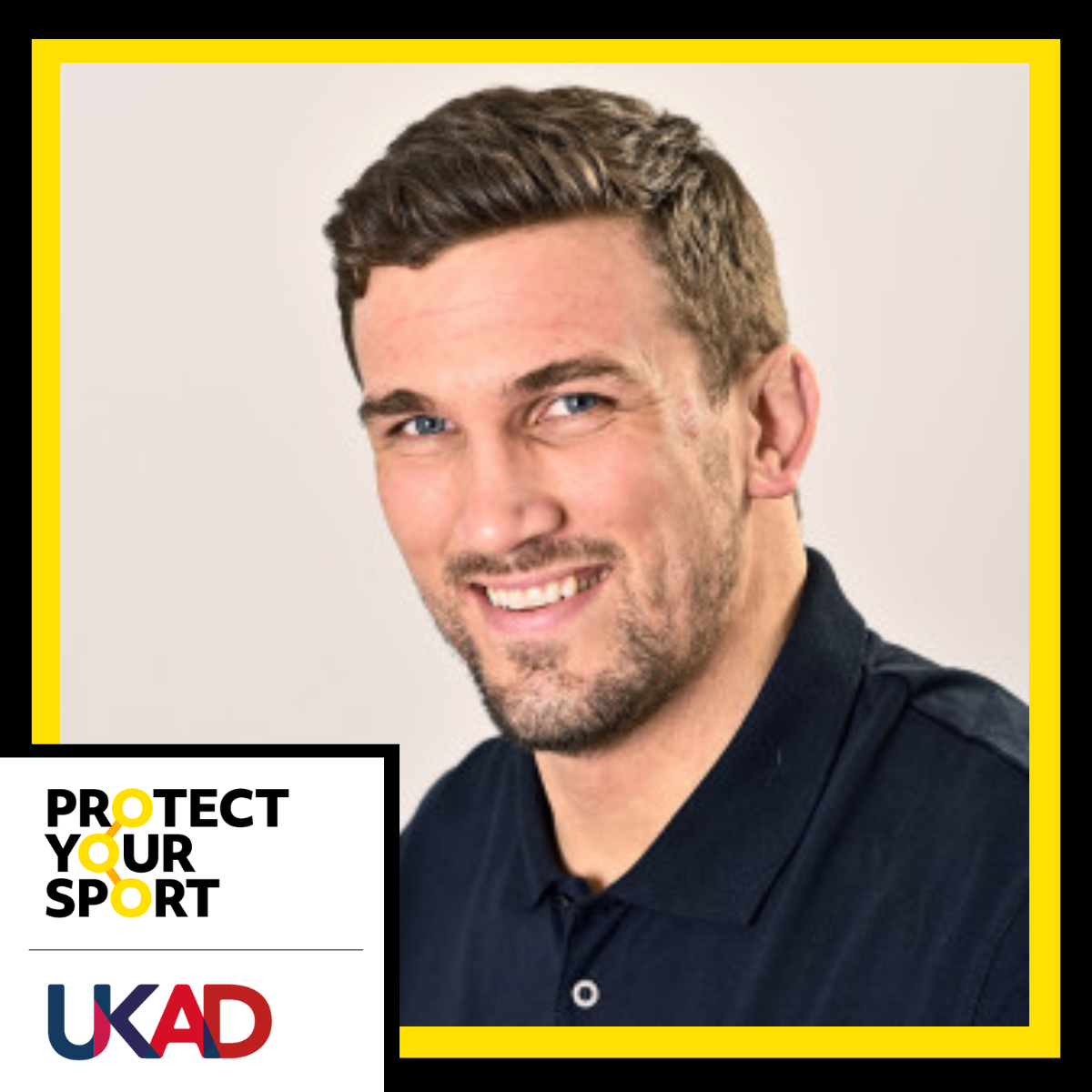A conversation with UKAD Athlete Commission member and sprint coach, Bernice Wilson
Published for UKAD's Clean Sport Week 2023, Coaches Day (Wednesday 24 May)
Bernice Wilson is a GB sprinter who, since serving bans for two separate Anti-Doping Rule Violations (ADRVs), has become an advocate for anti-doping. During the time of Bernice’s second violation, she was unaware of taking any banned substances and discovered that her then coach Dr Skafidas had been administering the substances without her knowledge. Bernice now works for the NHS and thoroughly enjoys it. Bernice also coaches sprinting in different sports such as athletics, rugby, and football.

How important is teamwork in clean sport?
Teamwork in clean sport is particularly important. It is crucial to make sure that athletes are surrounded by athlete support personnel that are aware of all the correct policies and procedures. Having a good team keeps an athlete safe.
What is important to you when coaching athletes?
When coaching athletes, it’s important to me that they are aware of the support they have around them. As a coach, the training is of course important but so are the other support networks, and this is especially true in Athletics which is an individual sport. A good physio, up to date nutritional advice, parents willing to transport the athletes to training and events, and athletes educated in clean sport.
Why is clean sport education so important?
Clean sport education is so important because people need to be aware of the rules and their responsibilities. Education supports athletes on the testing process which can be a scary thing when you are just starting out in your career. Education also provides the most current information on what is prohibited in sport.
People always need to keep up to date on clean sport education because, as we have seen, people can lose their careers and reputations by not staying up to date on anti-doping.
What do you think are the main challenges for today’s elite athletes to remain clean?
Ingesting a food, medicine or supplement that is prohibited. That’s why it is crucial to keep up to date with the changes on The Prohibited List.
Athletes can dope for many reasons – some think that their opponents are cheating and so should do the same and believe that they can get away with it.
Pick wisely the team around you and make sure your coach always has your best interests at heart, and believe me, some do not!
In your opinion, does testing athletes create a deterrent to doping?
Testing athletes does create a deterrent to doping, but I believe some athletes will do whatever it takes to get an artificially better performance. This could involve possibly doping as well taking masking agents, or even not being where they say should be for Whereabouts.
What resources would you recommend athlete support personnel starting out to use?
The resources I would recommend athlete support personnel use include UKAD’s Clean Sport Hub, this is free to use and provides up to date clean sport education courses. Also, the use of Global DRO is a good resource to use, to make sure ASPs are up to date with what medicines and treatments that athletes can and cannot take.
What are the tell-tale signs or motivations for doping?
The tell-tale signs of doping are many but some signs to be aware of how the athlete’s appearance seems different, such as an increase or decrease in weight within a short amount of time. Behaviour may seem different too like keeping themselves to themselves. Also, a very rapid increase in performance over a short amount of time. The motivations to dope could be because their performance hasn’t improved despite lots of extra training and then they see an opponent improve and they want to be at that higher level.
What do you see the coach’s role being in supporting athletes to follow the rules of clean sport?
The coach’s role is to support athletes and ensure that they follow clean sport rules and to keep up to date in clean sport education - this can involve taking clean sport education courses.
Also, making sure the athletes are aware of UKAD resources including the Clean Sport Hub, where both athlete and coach remain up to date in their education. Also being aware of Global DRO - this is another useful resource when looking up medicines. Moreover, ensuring that the athlete’s parent/guardian knows the coach is available to speak to about any concerns that they may have.
What should athlete support personnel do if they have suspicions of someone doping?
If you do have suspicions about a teammate or individual doping, my advice would be to report your concerns to UKAD, no matter how small you think it might be. It’s not easy coming forward but UKAD is there for those who want to speak out and protect the integrity of sport.
There are three ways in which you can share your suspicions, you can contact Protect Your Sport directly at pys@reportdoping.com There is also an on-line form on the Protect Your Sport website which you can use anonymously but leaving your name will help UKAD catch the cheats. Alternatively, you can call 08000 32 23 32 and it’s available 24/7.


